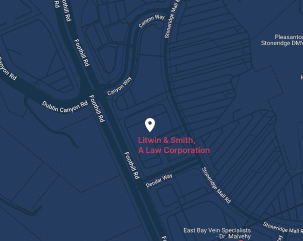In the complex landscape of employment law, I-9 compliance stands as a crucial requirement for all employers in the United States. This compliance is particularly significant when hiring foreign nationals. If your organization seeks to hire immigrant professionals through employment immigration channels, I-9 reporting compliance is crucial. Here’s what you should know about immigration verification with the I-9 form.
The Importance of I-9 Compliance and ICE Audits
The Form I-9, Employment Eligibility Verification, is a mandatory document used by employers to verify an employee’s identity and authorization to work in the U.S. Employers are legally required to complete and retain an I-9 form for each individual they hire for employment in the United States. The I-9 form helps employers ensure that they are hiring individuals who are authorized to work in the U.S. Employing unauthorized workers can result in severe penalties.
ICE is responsible for enforcing the laws related to the employment of unauthorized workers. They conduct audits to ensure that employers comply with these laws. During an audit, ICE will review an employer’s I-9 record keeping to ensure all I-9 forms are completed and maintained correctly.
Non-compliance with I-9 requirements can lead to serious consequences for employers. Penalties can range from monetary fines to criminal charges, depending on the severity of the violations. These penalties are not just limited to knowingly hiring unauthorized workers but also include failing to properly complete, retain, and produce the forms upon request.
Key Aspects of Employer Immigration Responsibilities for I-9 Compliance
Employer immigration responsibilities for I-9 compliance are multifaceted and critical to ensure legal employment practices, especially when hiring foreign nationals. Here are the key aspects of immigrant employee verification that employers need to consider:
- Timely Completion and Accuracy: Employers must ensure that the I-9 form is completed accurately and timely, usually within three days of the employee’s start date.
- Document Verification: Employers must examine documents provided by the employee to establish their identity and employment authorization. It’s crucial to understand which documents are acceptable for this purpose.
- Record-Keeping and Retention: Employers are required to retain I-9 forms for a certain period, which depends on how long the employee works for the company and when they were hired.
- Ongoing Compliance and Updates: Immigration laws and regulations can change, and employers must stay updated to ensure they continue to comply.
Challenges in I-9 Compliance
Employers often face challenges in maintaining I-9 compliance, particularly in understanding the complexities of immigration laws and the nuances of acceptable documentation. There’s also the challenge of keeping up with changes in legislation and ensuring that all HR staff are properly trained in the processes for hiring foreign nationals, such as recognizing approved work authorization documentation and using e-Verify correctly.
Role of Immigration Attorneys in Ensuring I-9 Compliance
An experienced immigration attorney can be an invaluable asset in navigating the intricacies of I-9 compliance. Here’s how they can assist:
- Expert Guidance: Immigration attorneys provide expert advice on all aspects of I-9 compliance during and after the hiring of foreign nationals, helping employers understand their legal obligations.
- Training and Education: They can train HR personnel on the correct procedures for completing and storing I-9 forms and recognizing valid documentation.
- Auditing and Review: Attorneys can conduct internal audits of your current I-9 processes and suggest improvements to ensure accuracy.
- Legal Representation: In the event of an audit by Immigration and Customs Enforcement (ICE) or other governmental agencies, an immigration attorney can provide legal representation and guidance.
- Re-Verification of Work Authorization: If an employee’s work authorization is temporary, the employer is responsible for re-verifying that the employee remains authorized to work in the U.S. before their current authorization expires.
- Staying Updated: With their knowledge of current and upcoming immigration laws, attorneys can help employers stay ahead.
By diligently addressing these aspects, employers can significantly reduce the risk of legal issues and penalties associated with non-compliance with I-9 requirements.
Talk to Experienced Employment Immigration Attorneys About I-9 Compliance
Maintaining I-9 compliance is not just a legal necessity but also a critical aspect of responsible business practice. Employers should view the I-9 employment verification process as part of their commitment to ethical employment practices. By partnering with a skilled immigration attorney, businesses can ensure that they not only comply with the law but also protect their workforce and reputation.Remember, I-9 compliance is an ongoing process, and with the right guidance and expertise, it can be seamlessly integrated into your business practices. Learn how to hire foreign nationals while complying with I-9 requirements with expert legal help by scheduling your consultation with Litwin & Smith today.

